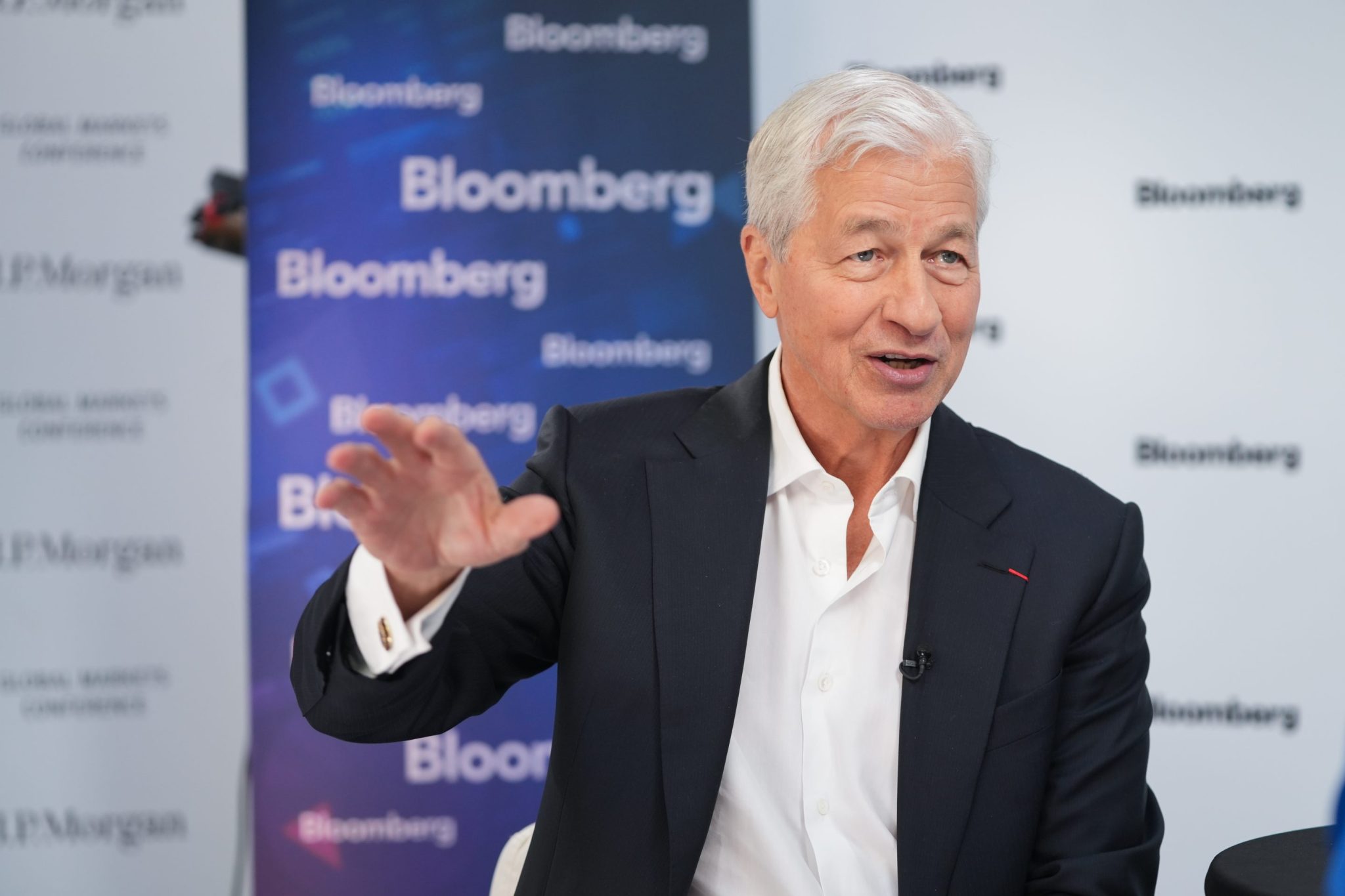Many on Wall Street wait on tenterhooks for updates from Fed chairman Jerome Powell—literally analyzing his speeches down to the word—but JPMorgan Chase boss Jamie Dimon isn’t one of them.
Not because he doesn’t care, but because the CEO of America’s biggest bank is trying to focus on the economic policies of interest to the majority, not just the analysts of the Street.
In the past week, markets were volatile following a report from the Bureau of Labor Statistics saying new job creation was softer than expected. Experts brought forward their expectations of a much-anticipated interest rate cut, pricing in higher reductions than previously thought. Japanese equities dropped 12.4% on the news and the European and U.S. markets followed like falling dominoes.
The upset refocussed attention on the base rate—currently at a more than two-decade high of 5.25%—but Dimon questions whether the average American on the street is equally as jumpy about the Fed’s next move.
“I hate to say this, I don’t think it matters as much as other people think,” Dimon told CNBC in an interview published yesterday.
“The rate effect itself isn’t that critical. Obviously psychologically there’d be a lot of chatter out [there]: ‘What does it mean?’ ‘What are they thinking?’ ‘Are things getting bad?’
“But I also remind people every day 325 million Americans go to work, go to their jobs, take care of their families, take care of their kids, build out their house, change a job. And it could be affected by the Fed changing rates by 50 base points? I don’t think so.”
Dimon’s theory that consumers may not be as hung up on the base rate as their Wall Street counterparts has been supported to some extent by a working paper from the Federal Reserve Bank of Cleveland.
In a study published in January 2024, researchers found that communicating monetary policy to the average consumer had “small effects” on their perception of inflation, though it did have more of an impact on consumers who previously knew nothing about Fed rates.
The research also found that at the height of inflation in 2022—arguably when consumers might have been paying the most attention to a metric aimed at bringing it down—the public was instead disengaging.
Researchers Edward S. Knotek II, James Mitchell, Mathieu O. Pedemonte, and Taylor Shiroff wrote that in June 2022, when inflation reached 9.1%, “not everyone was paying attention…
Click Here to Read the Full Original Article at Fortune | FORTUNE…


